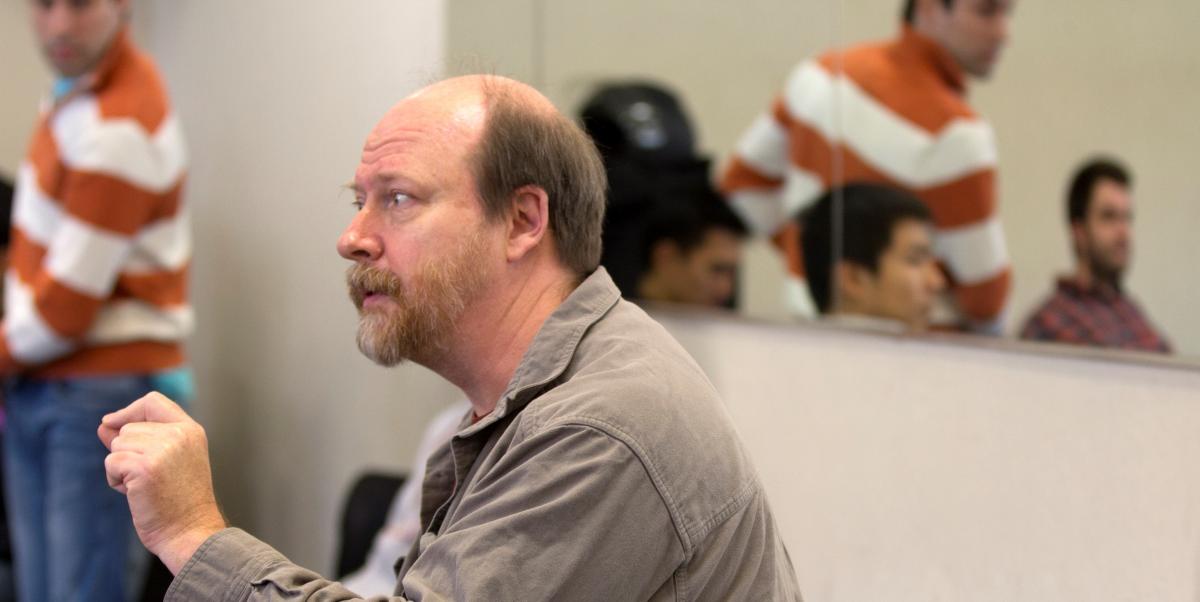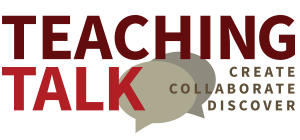The Power of Performance: A Conversation with Tom Freeland

The Power of Performance: A Conversation with Tom Freeland
Dr. Tom Freeland is a lecturer at Stanford University who teaches voice workshops and classes such as ‘The Art of Effective Speaking’ and ‘The Performance of Power.’ I spoke with Dr. Freeland about why speaking well is important for both instructors and students, and how we can all improve our oral communication skills.
What is powerful about the spoken word?
According to Dr. Freeland, the spoken word can move people in unique ways. It has the ability to stir their passions in ways that written words might not (think of the historic speeches delivered by Dr. Martin Luther King and others during the fight for civil rights).
Speaking well is important in the classroom as well as the political arena. Instructors should think about their audience and what they want to project to their students. What impressions should they come away with after a class with you?
Studies show that students are more likely to be engaged by a subject if the instructor is enthusiastic about it. If you are apprehensive about your speaking skills, you may want to try becoming more comfortable with your voice, diction, and projection. See short clips of Dr. Freeland demonstrating some speaking exercises with a class below.
Projection through articulation
Vocal exercises
I don’t know how to perform! What can I do?
Dr. Freeland distinguishes between acting and staging a non-fiction performance. Any lecture might be considered a non-fiction performance. For these, you do not need to ‘fake’ anything or take on another persona.
Nevertheless, some principles of acting still apply to non-fiction performances. For instance, Dr. Freeland observes that students are very “receptive to narratives,” and that couching lecture material within a story can enhance student attention.
You can integrate lecture content into a narrative in any subject without any major reorganizing. If you’re introducing a new mathematical formula, for instance, why not incorporate it in a story about the initial discovery of the formula? Or you could briefly outline a scenario in which the formula is frequently used (e.g., in the design of cars or airplanes).
Don’t be afraid to insert a personal story or express your enthusiasm for a topic. It may help to put yourself in ‘beginner’s shoes’ to remember where your students are approaching the material from and to think of helpful supporting stories.
If you use PowerPoint presentations, be conscious of your audience. As Dr. Freeland notes, today’s students are sophisticated consumers of media, and will expect slides that serve a clear purpose (read: not filled with text). It is critical to remember that “you are source of information and expertise,” not your slides. The slides are there to support your narrative and provide visuals of concepts or ideas that you cannot portray on your own (read presentation zen for more powerpoint presentation tips and see also additional lecturing guidelines).
How can student performances enhance learning?
Though as an instructor your performances might generally be non-fiction, incorporating some drama in the classroom for your students to participate in can help them engage with your material. Dr. Freeland explains that participating in hypothetical scenarios “creates a safe opportunity for students to extend their imagination” and explore identities and perspectives different from their own.
In social science or medical courses, for instance, you could create skits for students to act out, with scripts depicting difficult issues or cases. More examples and resources are available in this article on using drama in the classroom. Dr. Freeland’s advice for incorporating performing in the classroom is to start modestly, and be sure to allow students time to process the activity afterward.
Have you or your students employed performance skills in your classroom? Share your experiences here!
Further Reading:
Patrick, Brian C., Jennifer Hisley, and Toni Kempler. 2000. “‘What’s Everybody So Excited About?’: The Effects of Teacher Enthusiasm on Student Intrinsic Motivation and Vitality.” The Journal of Experimental Education 68 (3): 217–36. doi:10.1080/00220970009600093.
- Log in to post comments




